History
After World War II, Franck Pilloton travels through France from church to church designing new tapestries to replace the ones which were destroyed. 60 years later, his son perpetuates this intimate connection to carpets and rugs by creating Un Tapis À Paris.
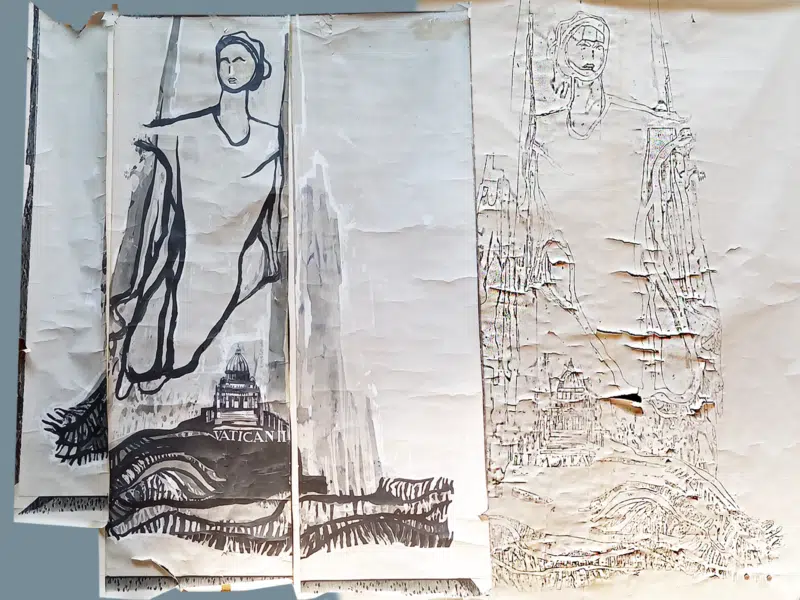
Tapestry cartoon and its tracing paper created by Franck Pilloton in 1962 for the Second Vatican Council.
Eclectism
Un Tapis à Paris draws from several sources of inspiration: exoticism and sensuality of foreign cultures, Oriental or African, geometrical language, expressed through shapes, to the effigy of French tradition and our profound knowledge of arts and crafts. More than a creative process, it is a state of mind.
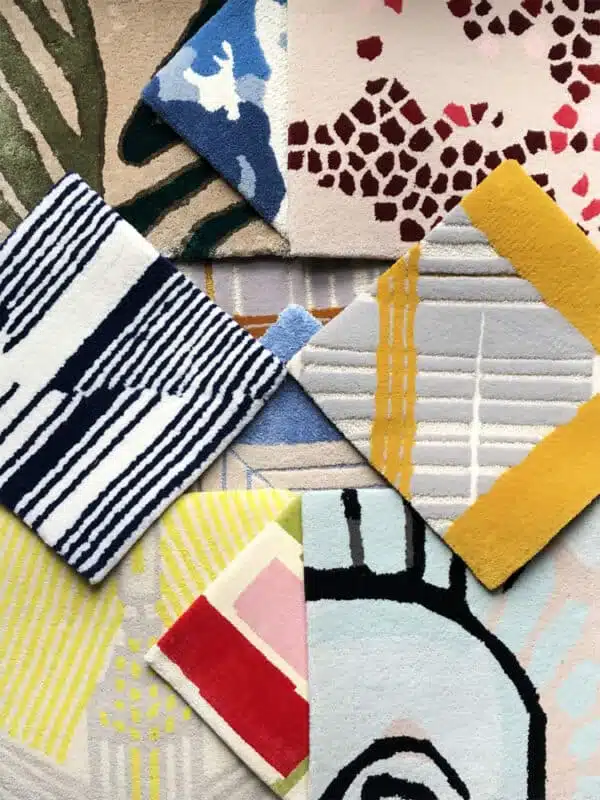
Limited edition
Un Tapis à Paris designs each of its creations like genuine artwork. For that reason, we have decided that each model will not be produced in more than 8 editions. Each rug will therefore be signed, numbered and will come with a certificate of authenticity to guarantee its uniqueness.
Designed in Paris
In the twenties and thirties, Paris rapidly became the city of Decorative Arts. By establishing its main office in the city center, Un Tapis à Paris wanted to show its deep attachment to the city’s past and to its visionary leaders such as Jean Prouvé, Puiforcat, Jules Leleu, Jean Dunand or Jacques Adnet who thought up the interior design of dream palaces in Paris or as far as the Maharajahs’ India. Paris spreads around the world in concentric circles.
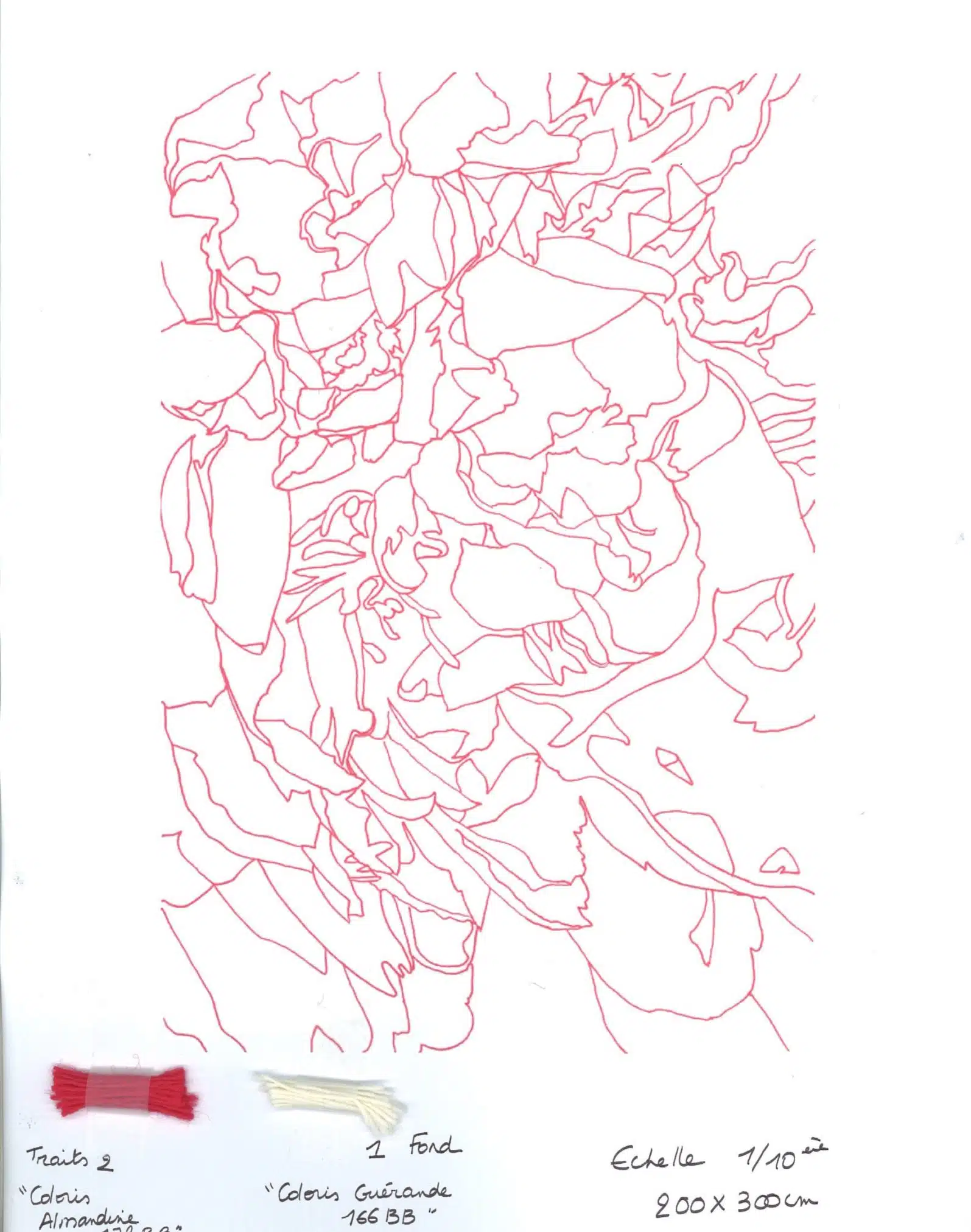
Drawing and colors – Place Louis Lépine
Manufactured in Europe
Un Tapis à Paris offers an expanding permanent collection, and works closely with manufacturers in France, Portugal and Spain chosen for their technical skills, the quality of their work and their transparency. Able to suit any atypical project, Un Tapis à Paris offers dedicated bespoke projects, all you have to do is ask.
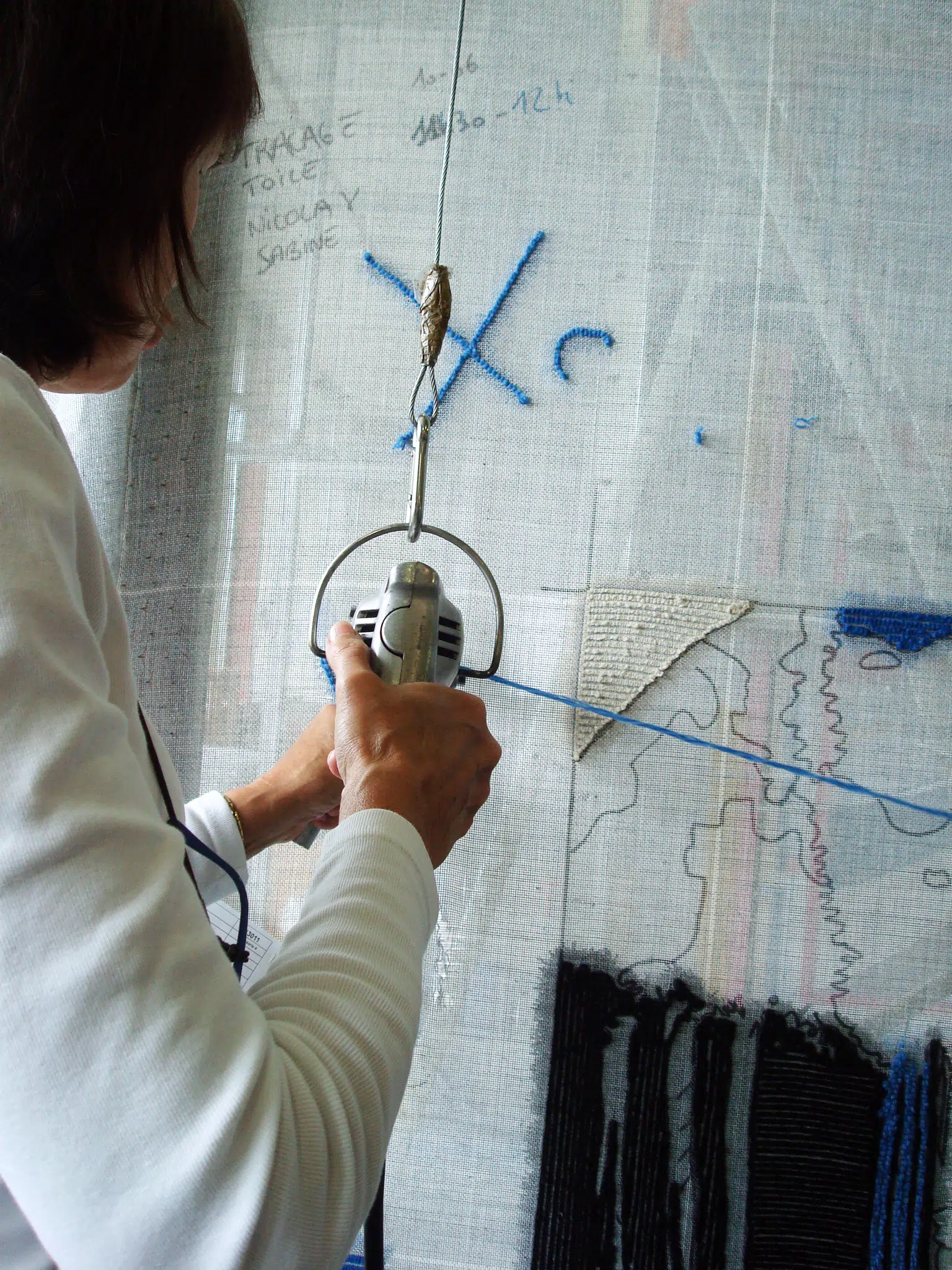
Rue des Abbesses being hand tufted
Committed to quality
Manufacturing in Europe ensures us to create products meeting the highest standard of quality. This commitment also allows us to develop a coherent economic model while assuring the best social, ethical and environmental conditions during the whole process.
Whether it is Spain, Portugal or France, Un Tapis à Paris calls experienced and passionate craftsmen, skilled in meticulous ancestral know-how which requires unique dexterity and expertise.
A respectful production process
Manufacturing in Europe ensures us to create products meeting the highest standard of quality. This commitment also allows us to develop a coherent economic model while assuring the best social, ethical and environmental conditions during the whole process.
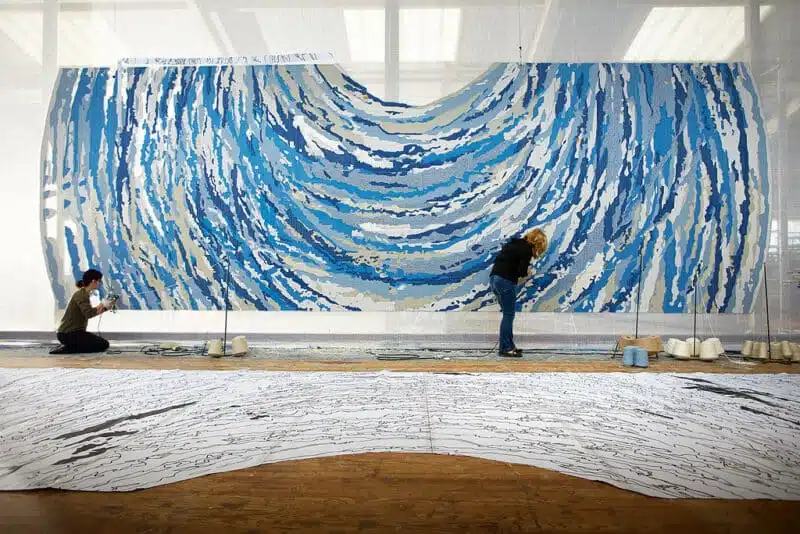
Whether it is Spain, Portugal or France, Un Tapis à Paris calls experienced and passionate craftsmen, skilled in meticulous ancestral know-how that requires unique dexterity and expertise.
Made with fine materials
The brand pays particular attention to the environmental friendliness of its products by using only natural raw materials such as New-Zeland wool, lyocell, produced from wood or silk.
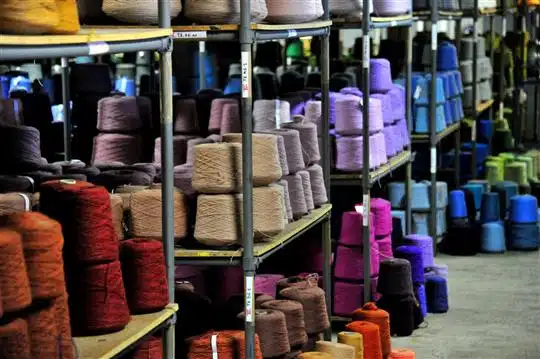
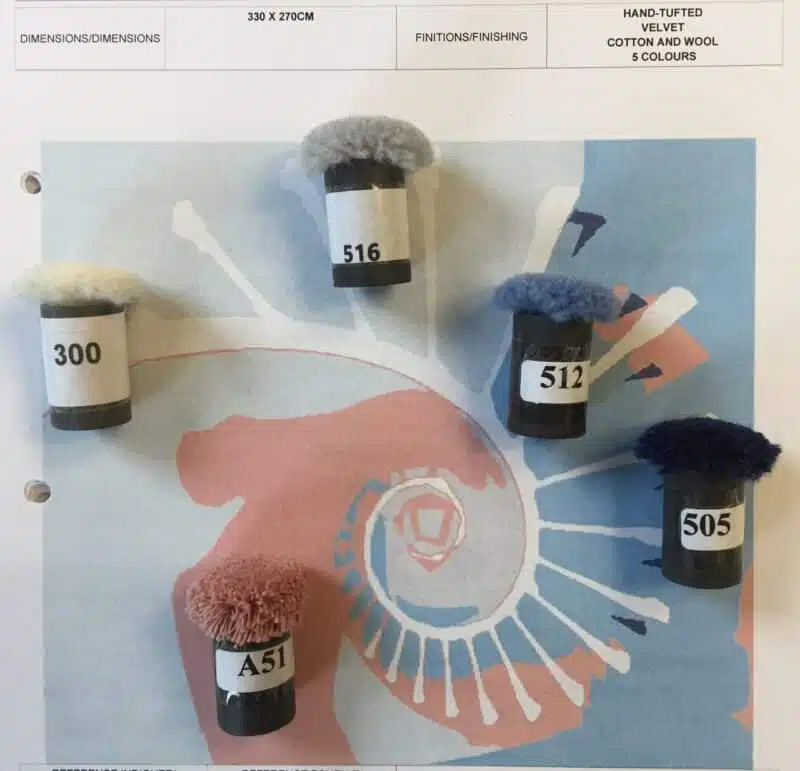
All of the brand’s designs are the product of rich and creative artistic research, sublimating the quality and dying processes of the materials used.
